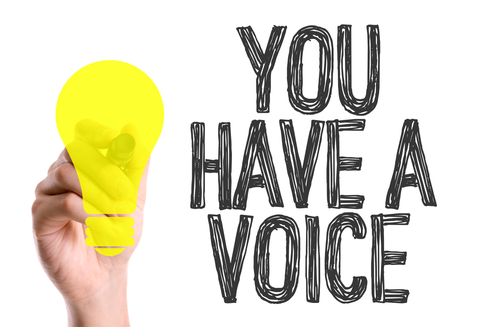Advocacy Is a Powerful Thing
Written by |

I recently saw a news article about a bridal store in England that not only made a positive impact on one future bride’s life but also on others’.
The White Collection Bridal Boutique displayed a mannequin in a wheelchair while wearing a wedding dress. Someone posted a photo of it on Twitter, and it went viral.
https://twitter.com/doodlebeth/status/1082962055169216513
Unfortunately, this public type of attention and care is not something seen in everyday life. The owner of the bridal store, Laura Allen, told Today Style that she loves “the fact that it’s so simple compared to our window display before, yet it portrays such a powerful message of inclusion.” She didn’t think it would get as much attention as it did, but she is glad it did. She thinks it should be the new norm.
As I mentioned in my column last week, inclusivity is becoming more popularized in today’s fashion world, as seen in the introduction of adaptive wear by major brands such as Nike and Tommy Hilfiger. Upon seeing the photo of a mannequin wearing a wedding dress in a wheelchair, more companies and stylists could choose to use models with disabilities.
One example is Aerie by American Eagle. The company created the slogan #AerieREAL, which features models with disabilities, chronic illnesses, scars, and stretch marks. Some of the models are cancer survivors. The company showcases models using assistive devices, such as crutches or wheelchairs. American Eagle’s mission is to encourage young women to feel empowered to embrace their own unique qualities and beautiful selves. Real women from all walks of life proudly displaying their disabilities, conditions, or illnesses is inspiring.
How do you raise awareness for Friedreich’s Ataxia? Share it in our FA forums. Sign up today!
What The White Collection Bridal Boutique, American Eagle, and other companies are doing is both a heartfelt and remarkable thing. Diverse communities are beginning to feel understood. However, more can always be done. More brands and companies could be making a powerful impact. To initiate that process, I believe we must start with one thing: patient advocacy.
It starts with one voice, and one voice is all it takes! We can make a difference by talking about our illnesses and raising awareness. It is important to practice advocacy in our everyday lives, especially when living with a rare disease. Get people to listen.
Although some days may be harder than others, I strive to achieve this goal. Living with Friedreich’s ataxia, also known as “the invisible disease” because not everyone can see what is happening internally and emotionally, can be difficult to explain.
My main motivation in embracing advocacy is to let the world know that disabilities come in all ages, shapes, and sizes. FA is extremely rare, affecting only 15,000 people worldwide. I cannot count how many rude comments, looks, and remarks I have received from people I know and others who I don’t, about my walking challenges. This continues to happen even when using a rollator. I have been accused of being drunk on the way to work, and I’ve been asked what’s wrong with me because I look too young to use a walker. Recently, someone told me they feel sorry for me as they walked around me to get to where they were going.
It is hard to quickly think of a response in those moments because I am struck by how people fail to think before speaking, and how cruel they can be. However, I usually say, “I have a rare neuromuscular disease, Friedreich’s ataxia, which has no cure. Please visit www.curefa.org for more information.” Recently, I have been saying, “I need this assistance device to keep me safe when I walk due to my rare disease, Friedreich’s ataxia.”
I used to hand out small business cards supplied by the National Ataxia Foundation explaining what ataxia is, along with its symptoms, so that people have something to leave with. I also like to share my stories and hardships to help people understand what I go through daily. It’s important to be kind to people because you never know what they are dealing with.
When I raise awareness, I hope people listen, because the best we can do is educate others to make them more aware of their surroundings. People can inherit all types of disabilities. Yet, you never know what advocacy can lead to. Perhaps it might lead to a prominent store window display!
***
Friedreich’s Ataxia News is strictly a news and information website about the disease. It does not provide medical advice, diagnosis or treatment. This content is not intended to be a substitute for professional medical advice, diagnosis, or treatment. Always seek the advice of your physician or another qualified health provider with any questions you may have regarding a medical condition. Never disregard professional medical advice or delay in seeking it because of something you have read on this website.






Leave a comment
Fill in the required fields to post. Your email address will not be published.